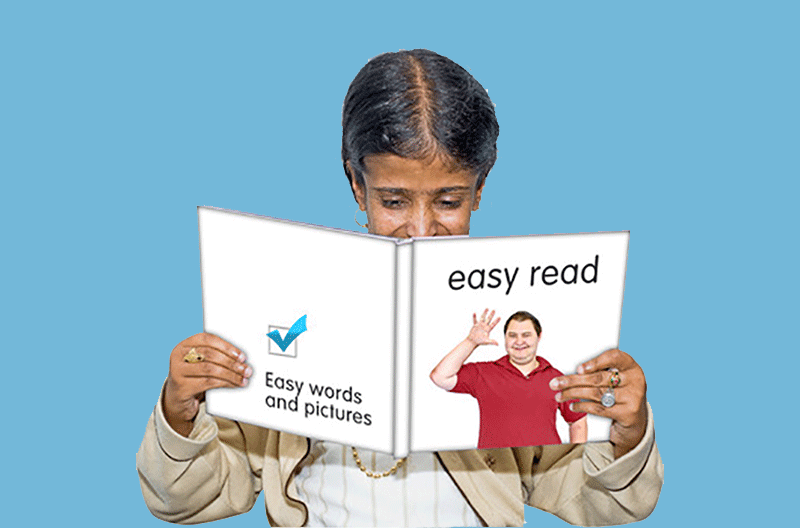For carers: Warning signs and risks
When you support or care for someone it can be harder to spot the warning signs of constipation. The advice on this page will help you to identify some of the signs and risks.
Remember that constipation can be a potential serious health issue if it is left diagnosed or untreated. Constipation can have potentially fatal consequences.
If you suspect someone you support has, or is developing, constipation it is important to keep a log of symptoms, medication and environmental factors. These will all help when you get in touch with their GP.
These things could indicate constipation
- Recent significant changes in bowel habits.
- Blood and/or mucus in stools or on a pad.
- Weight loss or weight gain or abdominal bloating. A tight waistband with no weight gain.
- Constipation with vomiting – with or without abdominal pain.
- Constipation and loss of appetite.
- Straining or painful and ineffectual straining.
- Where the person has epilepsy, changes in frequency of seizure activity.
- Other signs of possible faecal impaction (lethargy/pain/change in behaviour/faecal incontinence/foul smells/excessive wind/excessive visits to the toilet) and the individual does not have an existing current Bowel Management Plan.
- The person has had diarrhoea for more than 2–4 days (the NHS state that a ‘normal’ episode of diarrhoea should last between 2-4 days).
- The person is showing signs of Sepsis (remember the acronym S.E.P.S.I.S.):
- Slurred speech or confusion
- Extreme shivering or muscle pain
- Passing no urine (in a day)
- Severe breathlessness
- It feels like you’re going to die
- Skin mottled or discoloured
Sepsis is a risk from prolonged constipation and it is a serious and life threatening condition. Visit sepsistrust.org to find out more about it.
If the person is showing signs of Sepsis then seek medical attention IMMEDIATELY!
____
Next we will cover some of the risks for constipation, please visit the page linked below to find out how to prevent constipation.
Not drinking enough
Did you know that fibre doesn’t work properly without plenty of fluids to help it pass through?
Something as simple as not drinking enough good fluids (water!) can have a huge impact on gut health and bowel movements.
The right amount of the right fluids can help keep you regular and help poo pass easily.
If your mealtimes are irregular and you aren’t getting enough water then constipation is a probability.
This also means that constipation and diarrhoea can both have a negative impact on this vital fluid balance.
A person’s level of hydration should be assessed before any laxative medication is commenced. Laxatives can make dehydration worse.
People with dysphagia often have additional difficulties maintaining hydration. This can also be difficult for people with Profound and Multiple Learning Disabilities, as well as people who are physically unwell.
Some medications for saliva control can have an influence on general hydration levels.
Not pooing enough
Ignoring the urge to poo eventually leads to chronic constipation because the rectum no longer detects or responds to the presence of the stool. The longer the stool stays in the rectum, the drier and harder it becomes which makes the stool difficult to pass.
Most people open their bowels first thing in the morning or within 30 minutes of eating a meal or drinking coffee. This is the Gastrocolic Reflex.
Some people may not have the understanding in order to ‘push’ to initiate bowel movement – this can become exacerbated as constipation sets in.
Haemorrhoids (aka piles), anal fissures (tears near the anus) and other painful disorders can cause us to ignore the urge to go for enough poos. This, over time, can lead to a dilated rectum that doesn’t respond properly to the presence of a stool and causes constipation.
Other things that may cause distress and reluctance to use the toilet include the environment, experience or fear of abuse, previous experiences, lack of independence, lack of understanding and embarrassment.
Not moving enough
Sedentary lifestyles, such as sitting all day, lack of exercise, prolonged bed rest and inactivity all contribute to constipation.
Movement promotes Peristalsis (the wave-like muscle contractions that move food through the Digestive Tract). It decreases the time food takes to move through the Large Intestine, limiting the amount of water absorbed from the stool into the body – hard, dry stools are difficult to pass!
Aerobic exercise accelerates breathing and heart rate which helps to stimulate the natural contraction of intestinal muscles. Intestinal muscles that contract efficiently help move stools out quickly. Abdominal exercises strengthen muscles that facilitate bowel movements.
A straight posture and gravity enable the digestive system to work more effectively. A wheelchair user for example, could benefit from opportunities in supported standing (allowing physical space for organs to work effectively) and gravity to work in favour of the digestive tract’s route etc.
We need to acknowledge the impact and influence of a person’s posture and change of positions during each day. People with distorted body shapes and those without active independent movement are at risk.
Taking medications
Constipation risk is likely to increase when people are taking 5 or more medications.
Many drugs can slow down peristalsis. Antipsychotics, anticonvulsants, antidepressants, anticholinergics, hypertension medications, hypnotics, iron and calcium supplements can all cause constipation.
Pain relief, including over the counter meds can cause or contribute towards constipation. Some muscle relaxants, by their nature, can also impact and make the digestive processes less effective. Some medications for saliva control can have an influence on general hydration levels.









